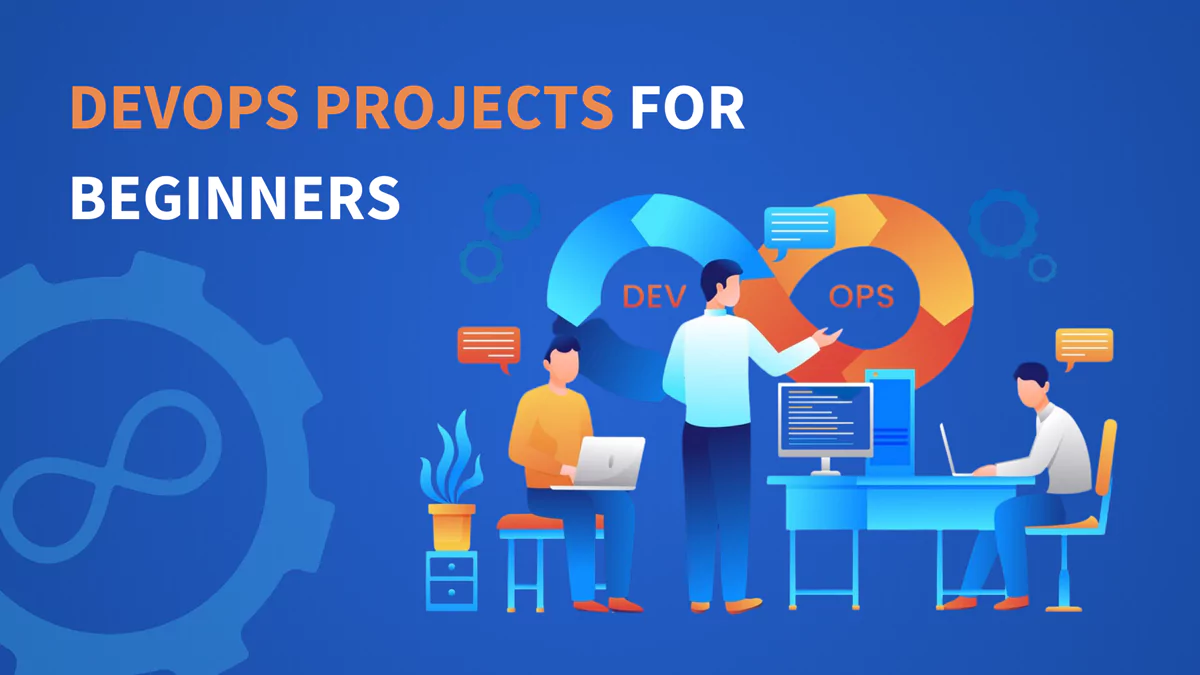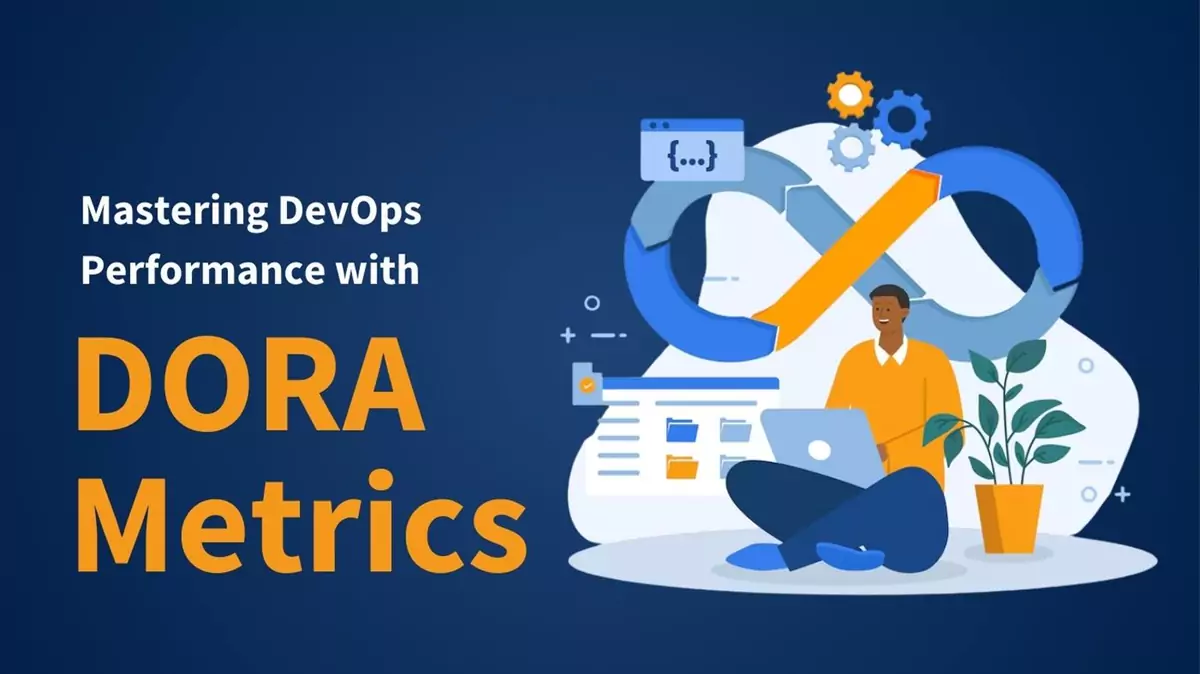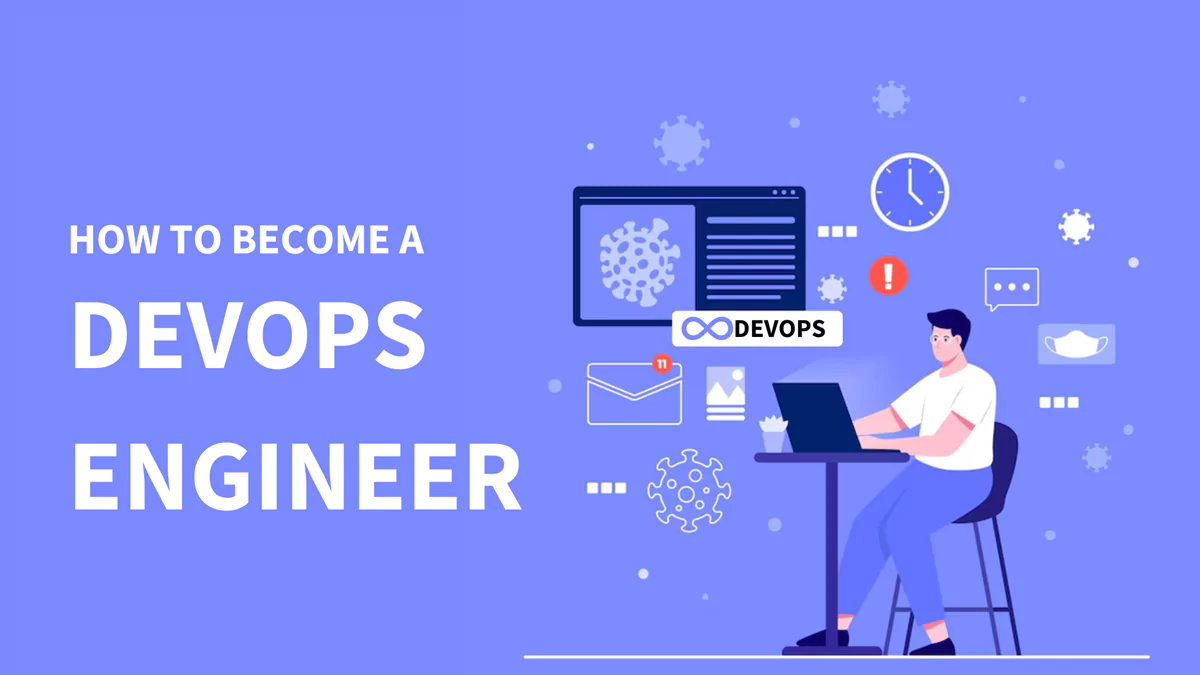In an IT company, DevOps is a very demanding technology innovation that also pays very well. Development and operations may work together more effectively with the help of DevOps. To comprehend it, you need to develop some amazing projects and master the fundamentals. The technologies and tools used to construct DevOps projects are also something you need to be familiar with.
Providing users with value in a timely and effective manner is the responsibility of a skilled software developer. To do it, you must adopt the DevOps technique and mindset. Regardless of your experience level, there are plenty of real-world DevOps projects that you can begin working on right now. These projects will teach you the skills necessary to thrive in DevOps, from automating your deployments to building a self-healing infrastructure. These initiatives will assist you in reaching your goals, whether you’re just getting started or searching for methods to simplify and enhance your workflow. These initiatives have a track record of producing observable outcomes and are grounded in practical experience.
Some of the greatest DevOps project ideas with source code for 2024 will be discussed in this article. The source code for these projects is supplied so you can examine and comprehend the coding portion. With these projects, you can also practice hands-on. First, let’s define DevOps before moving on to the projects related to it.
What is DevOps?
DevOps integrates development (Dev) with operations (Ops) to improve the efficiency, speed, and security of software development and delivery above traditional approaches. A more agile software development lifecycle provides a competitive advantage for organizations and customers. So, if you are a developer working in DevOps, a professional trying to better your abilities, or a team leader looking to implement DevOps in your organization, you can begin by checking out the finest DevOps projects with the source code listed below.
DevOps Projects for Practice with Source Code

The best way to learn something is to practice and implement it. If you are a beginner and want to skill up your knowledge, then these 10 DevOps projects can help you to become an expert DevOps engineer.
1. CI/CD Pipeline using Azure
A CI/CD pipeline is an essential component of any DevOps workflow. Automation of the build, test, and deployment processes can help to shorten the software development life cycle while also improving code quality. Azure Pipelines, Azure Container Registry, and Azure App Service are among the strong capabilities available to assist you in implementing a CI/CD pipeline. In this project, you’ll see how to use these services to create a full CI/CD pipeline for a web application. You are also going to learn how to keep track of your pipeline and ensure that everything is working smoothly. Azure DevOps project is ideal for beginners looking to get started with DevOps while learning about the major concepts and technology involved.
Source code: https://github.com/Microsoft/azuredevopslabs/tree/master/labs/vstsextend/azuredevopsprojectdotnet/
2. CD Pipeline using AWS
If you’re new to DevOps, one of the greatest places to start is by establishing a continuous delivery pipeline. A CD pipeline streamlines the process of transferring code changes from development to production. In other terms, it’s a method for automating the software distribution process. This can be a blessing for busy teams looking to avoid the time-consuming and error-prone process of manually releasing code changes. Automated deployments are not just for large teams; small teams can also benefit from them. There are numerous ways to configure a CD pipeline, but one popular one is to use Amazon Web Services (AWS). AWS DevOps projects offer a variety of tools for creating a CD pipeline, including CodePipeline, CodeBuild, and CloudFormation.
Source code: https://aws.amazon.com/getting-started/hands-on/create-continuous-delivery-pipeline/
3. Web Server using Docker
It might be tough for beginners to know where to begin with DevOps projects. However, setting up a Web Server with Docker is an excellent choice. This project will teach you the fundamentals of containers as well as how to set up and handle a web application with Docker.
You will also learn how to track your server and resolve any problems that emerge. This is a fantastic project for folks who are new to DevOps because it covers all of the fundamental principles and skills. After completing this project, you will be prepared to take on more difficult DevOps endeavors.
Source code: https://github.com/phusion/passenger-docker
4. Jenkins Remoting Project
The Jenkins Remoting Project offers a reliable and secure mechanism to link Jenkins nodes. The project’s purpose is to provide a set of APIs and tools that enable developers to remotely manage a Jenkins server. It is used for a variety of purposes, including dispersing build load across numerous nodes, performing jobs on nodes with various architectures, and offering increased security by separating nodes from one another.
The project is open-source and hosted on GitHub. It comes with extensive documentation and is simple to use. Furthermore, the project includes various sample configurations that can be used as a starting point for future setups.
Source code: https://github.com/jenkinsci/remoting
5. Building a Version Control System
A version control system (VCS) is an essential tool for software development teams. It enables developers to log modifications to their codebase, quickly revert to earlier versions, and interact with teammates. There are many alternative VCSes available, but Git and Mercurial are the most common. This project will teach you how to set up and operate a Git server for collaborative work. You’ll also learn how to incorporate DevOps projects like GitHub, Jenkins, and more.
Source code: https://github.com/gitless-vcs/gitless
6. Deploying Applications using Kubernetes
Kubernetes is an open-source container orchestration technology that automates application deployment, scaling, and management. This project will involve deploying a small web application utilizing a Kubernetes cluster. You’ll discover how to create Kubernetes objects like deployments, services, and secrets. You are also going to understand how to access and analyze your application via the Kubernetes Dashboard.
Furthermore, this will enable you to deal with Kubernetes’ many components, including pods, deployments, and services. You may also play around with handling failures and scaling the program. You will gain a deeper comprehension of DevOps and learn how to use it in practical situations by working on this project.
Source code: https://github.com/MagalixCorp/sample-api/
7. Structuring a Terraform Project
Any professional DevOps engineer is aware that Terraform is an essential component of any infrastructure-as-code toolbox. There is no better approach to improving your DevOps skills than taking on a few challenging Terraform projects.
Since learning is best done by doing, a Terraform project’s structure is an excellent place to start. Working with complicated infrastructure requires legible and maintainable code, which can only be achieved with a well-organized Terraform project. Using a boilerplate project structure at first, which you may modify to suit your needs, can be useful. You may play around with alternative code organization strategies after you feel more comfortable. It’s time to consider modularizing your code once you have the foundational framework in place. A strong method for increasing the reusability and updating ease of your code is modularization. Proper execution can also aid in decreasing the overall intricacy of your system. It’s vital to explore and determine which modularization strategy works best for you because there are numerous methods to write code. It is significantly simpler to manage and maintain your infrastructure if your Terraform project is thoughtfully designed.
Source code: https://github.com/antonbabenko/terraform-best-practices/blob/master/code-structure.md
8. Java Application using Gradle
Setting up a continuous delivery pipeline for a Java application using Gradle is an excellent starting DevOps project. Gradle is a strong tool for managing dependencies and automating activities. Furthermore, it’s relatively simple to master, making it an excellent alternative for novices.
Working on a Java program will also teach you about other key DevOps principles, such as Continuous Integration and Delivery (CI/CD). As you have a better understanding of DevOps principles, you can begin to experiment with different languages and technologies. But for the time being, stick to Gradle and Java, and you’ll be on your way to being a DevOps specialist.
Source code: https://docs.gradle.org/current/samples/sample_building_java_applications.html
9. Building and Executing Selenium Project
Students can gain real experience by working on a variety of DevOps initiatives. A good example is the development and implementation of a Selenium project. Selenium is a technology that automates web browsers, which makes it a crucial component of modern software development. To create and implement a Selenium project, students must have a solid grasp of both automation and web development fundamentals. Once students have a solid foundation, they can go on to more complex projects like building and executing a Selenium project. This type of project can be incredibly valuable to learners because it allows them to combine their knowledge and skills. Furthermore, accomplishing this type of project provides students with a real-world example of how to use DevOps concepts in a practical situation.
Source Code: https://github.com/leftstick/selenium-example
10. Building an App Monitoring Dashboard
The next phase is to create an app monitoring dashboard utilizing DevOps techniques. To develop this app, you should be familiar with the necessary tools and /*integrations. This project will monitor the health of your application using monitoring tools and provide instrumentation to programs.
This project allows you to submit rapid feedback on how the application operates, which aids in detecting and repairing issues. Throughout this project, you will learn about time series databases and how monitoring tools work. Some tools include Prometheus, Graphite, Statsd, Nagios, and Grafana.
Source code: https://github.com/topics/dashboard-application?l=javascript&o=desc&s=forks
Conclusion
DevOps has evolved significantly during the previous few years. What began as a community effort to bring development and operations teams together has evolved into a crucial component of any company’s digital strategy. If you’re looking for methods to enhance your DevOps process, this list of ten practical projects can help you get started. These projects are critical for any company aiming at improving its operations and boosting efficiency.


